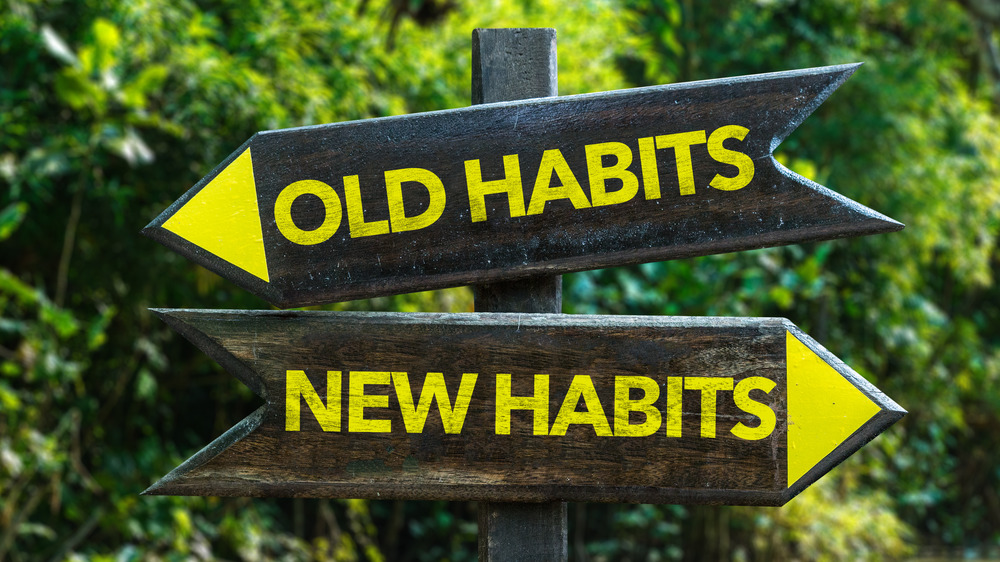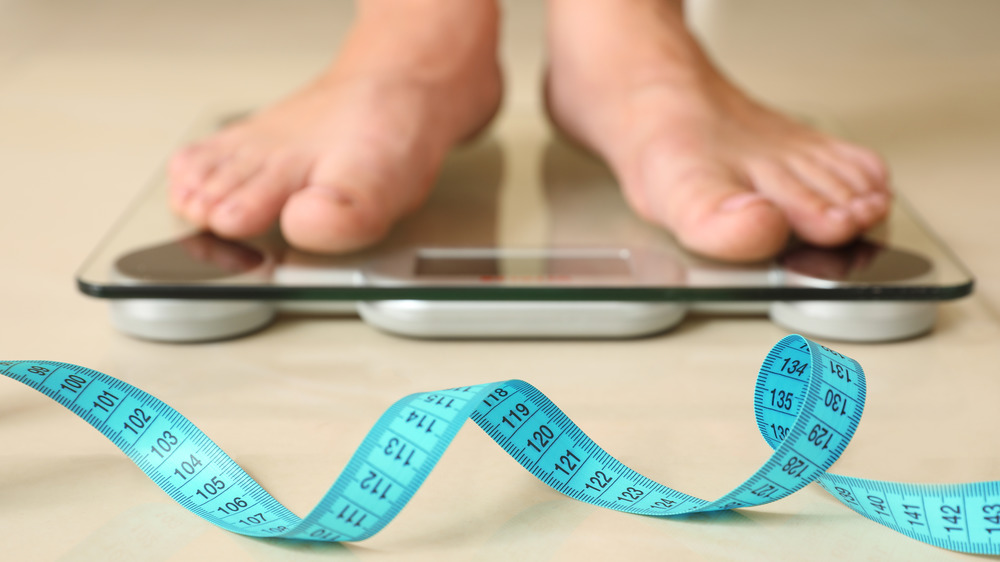The Non-Diet Approach To Eating That Could Change Your Life
Have you been struggling to keep to any kind of diet since, like, forever? Whether it's for purposes of weight loss or just to improve your overall health, it can be confusing and downright overwhelming trying to figure out the one "right" way to eat. Should you shun all carbs, or will that lead to problems? Should you follow a celebrity's recommendations, or follow a well-established program like Weight Watchers or Jenny Craig? Should you count calories, mind your macros, or do something else entirely? And what the heck is a glycemic index, anyway?
Sheesh. Spend a few hours researching this topic, and you may well be tempted to just say the heck with it and gobble down an entire frozen pizza with a side of Hershey bars. Rather than give into something you know will only feel good in the moment and result in long-term regrets, you could, instead, take a moment to listen to what registered dietitian/nutritionist Kristen Carli has to say about a concept called intuitive eating. Carli, the owner of Camelback Nutrition & Wellness, calls intuitive eating "a non-diet approach that focuses on listening to your inner body wisdom to make choices around food that feel good in your body, without judgment and external influences."
The goals of intuitive eating
Carli lists off 10 key principles of intuitive eating: rejecting the diet mentality, honoring your hunger, making peace with food, challenging the food police, discovering the satisfaction factor, feeling your fullness, coping with your emotions with kindness, respecting your body, feeling the difference in your movement, and honoring your health with gentle nutrition. She further explains the philosophy behind this new relationship with food, telling us that it is important to "dismantle the shameful messages diet culture has projected onto society [by] giv[ing] yourself unconditional permission to eat when you are hungry." As she puts it, "If you are constantly restricting yourself from eating, those cravings will intensify and can lead to binging."
Nor does Carli, nutritionist though she is, insist that you restrict yourself to only "healthy" foods — no need to cut out sugar, white foods, red meat, alcohol, sodas, etc. Instead, she says "you do not have to eat perfectly to be healthy; all foods fit in moderation." (Good news if you still want that pizza, though maybe just have a few slices and stick to mini Hershey bars.) Also, no matter your current state of fitness (or lack thereof), don't beat up on yourself about it. Carli says to "Respect your body and all that it does for you so you can feel good about who you are," pointing out the fact that all bodies — your own, and everyone else's — deserve to be respected, no matter their shape or size.
Who should try intuitive eating
Carli says that adopting an intuitive approach to eating can be particularly beneficial to people who may be prone to eating disorders. She says that intuitive eating may "help heal toxic beliefs surrounding food and their bodies." Anyone who's always dieting can also benefit by ditching the diets in order, Carli says, to "get back in touch with their body's needs and reject ... made-up rules set out by diet culture" — rules such as only eating at specific times of day, fasting, avoiding certain types of foods, etc.
While Carli does say that most people will be able to benefit from intuitive eating, she acknowledges that it does not apply in the case of people who have been diagnosed with certain medical conditions such as diabetes or Crohn's disease. In such instances, patients will need to follow more specific rules regarding how and what they eat for purposes of managing their condition. She does say, though, that even people with dietary restrictions "can still adopt some of the foundational principles [of intuitive eating] to their lifestyles."
Intuitive eating and weight loss
If your primary goal for modifying your eating habits is to lose weight, Carli admits that intuitive eating alone probably won't do the trick. "Weight loss," she allows, "requires a restriction of some sort, which goes against the principles of intuitive eating." Nevertheless, she says, "the basic principles can still be applied to your weight loss journey."
One of the principles that Carli suggests any dieter adopt is learning to respect your body. While she says society has conditioned us to feel that bigger bodies are unhealthy, this isn't always true. Weight is only one indicator of health, not necessarily the most important one. She says it's important to "Shift your perspective from wanting to change your body to focusing on how you feel about your body and what you can do to improve that." Additionally, she suggests applying the intuitive mindset to exercise as well as eating, advising you "shift your focus to how exercising makes your body feel instead of thinking about how many calories you need to burn in your exercise session."



